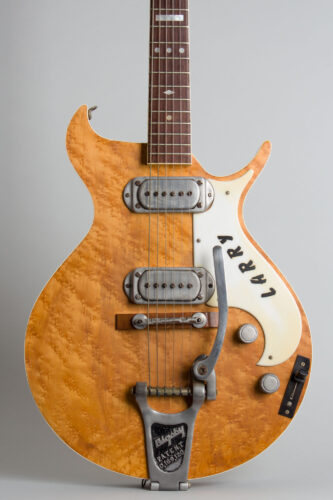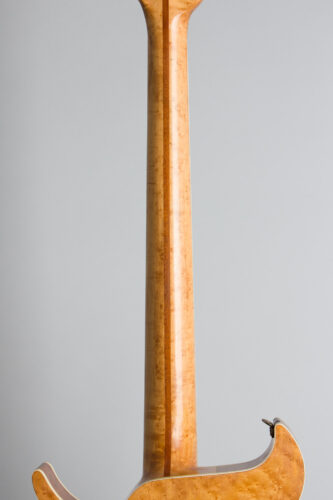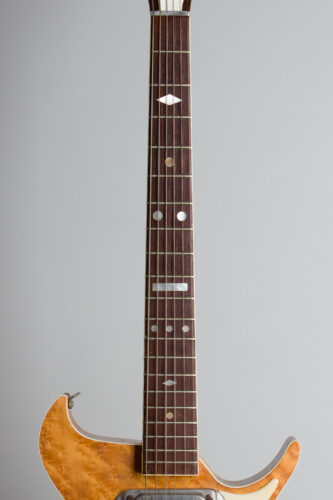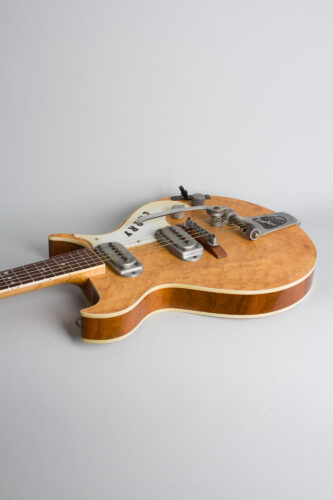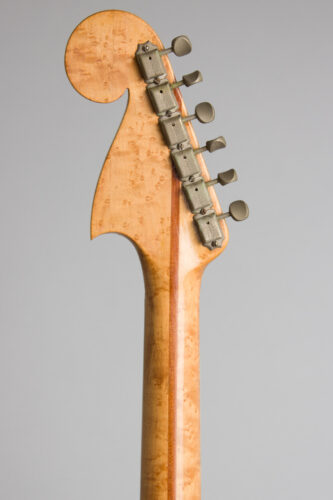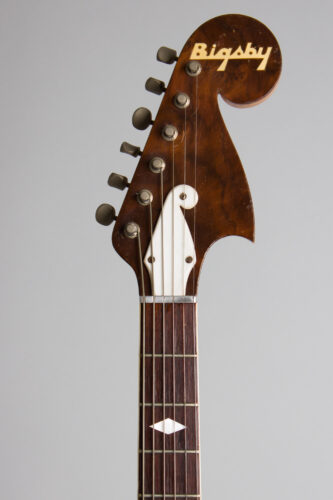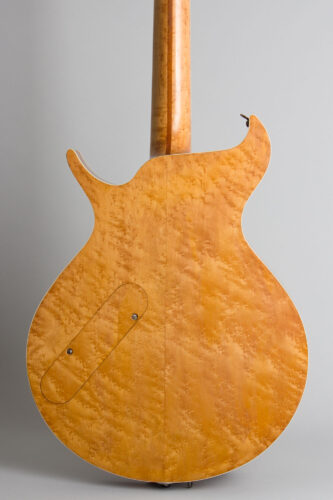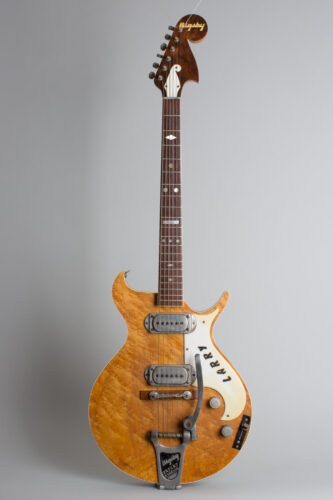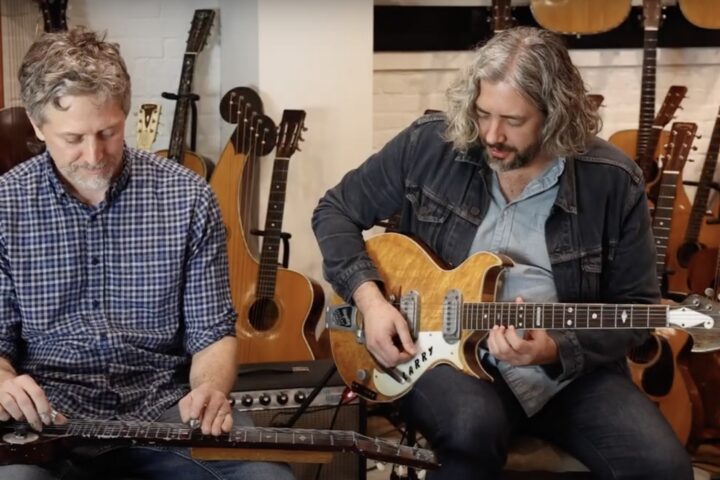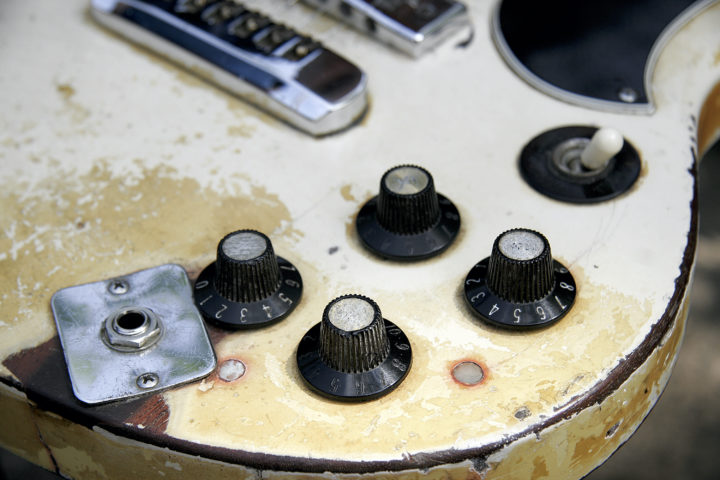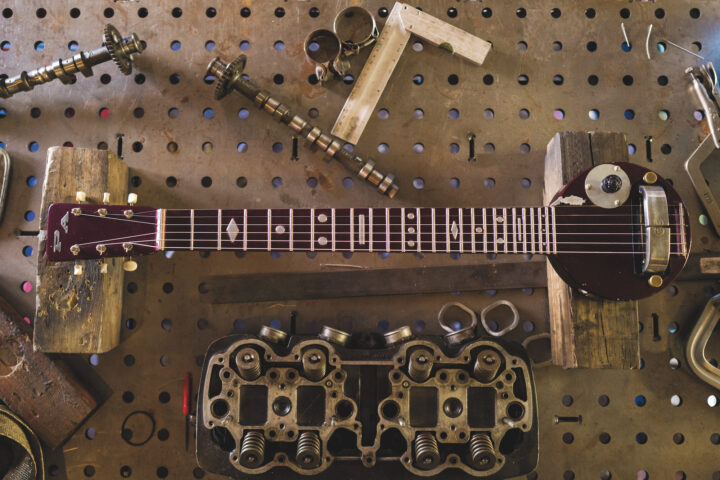Paul Bigsby is one of the most important figures in the world of electric guitar development. Of course, everyone knows about his namesake (and still enduring) vibrato design. But the ultra-rare creations he made before the vibrato took off – innovative lap steels, pedal steels, electrics, and neck conversions – are the stuff of legend. These instruments, primarily built for country stars in the ’40s and ’50s, helped usher in and influence the modern electric guitar.
New York City’s Retrofret Vintage Guitars recently posted what might be the last Spanish-necked guitar that Bigsby ever built. Previously undocumented, this guitar was finished on September 15, 1958 for a Midwest studio owner named Larry (whose name is still engraved in the pickguard). At the time, Larry’s guitar order cost around $400.
Today’s asking price? $750,000.
On this week’s Fretboard Journal Podcast, we talk to the always-lively Steve Uhrik and Peter Kohman from Retrofret about it. We hear about how this guitar ended up at their store, Bigsby’s incredible legacy as a guitar designer (and why it’s so hard to copy one even today), the evolution of early electric guitar design, Bigsby’s strained relationship with Leo Fender (and Semie Moseley), the skinny “hot rod” neck that Bigsby specialized in, and the time Merle Haggard bought Lefty Frizzell’s Gibson J-200 from Retrofret (and the gamble with Haggard they politely declined).
We also hear about Retrofret’s recent video shoot (below) with Bill Frisell on this Bigsby guitar and what Bill thought of it.
This is an entertaining chat about both an extremely collectible instrument and the rich history of the electric guitar. We hope you enjoy it.
This episode is sponsored by Peghead Nation (use the promo code FRETBOARD and get your first month free or $20 off any annual subscription); Retrofret Vintage Guitars; Izotope (use the discount code FRET10 to save 10% off your Izotope purchase); and Calton Cases.
Subscribe to the Fretboard Journal magazine here and support all that we do, including our growing family of podcasts. Click here.
